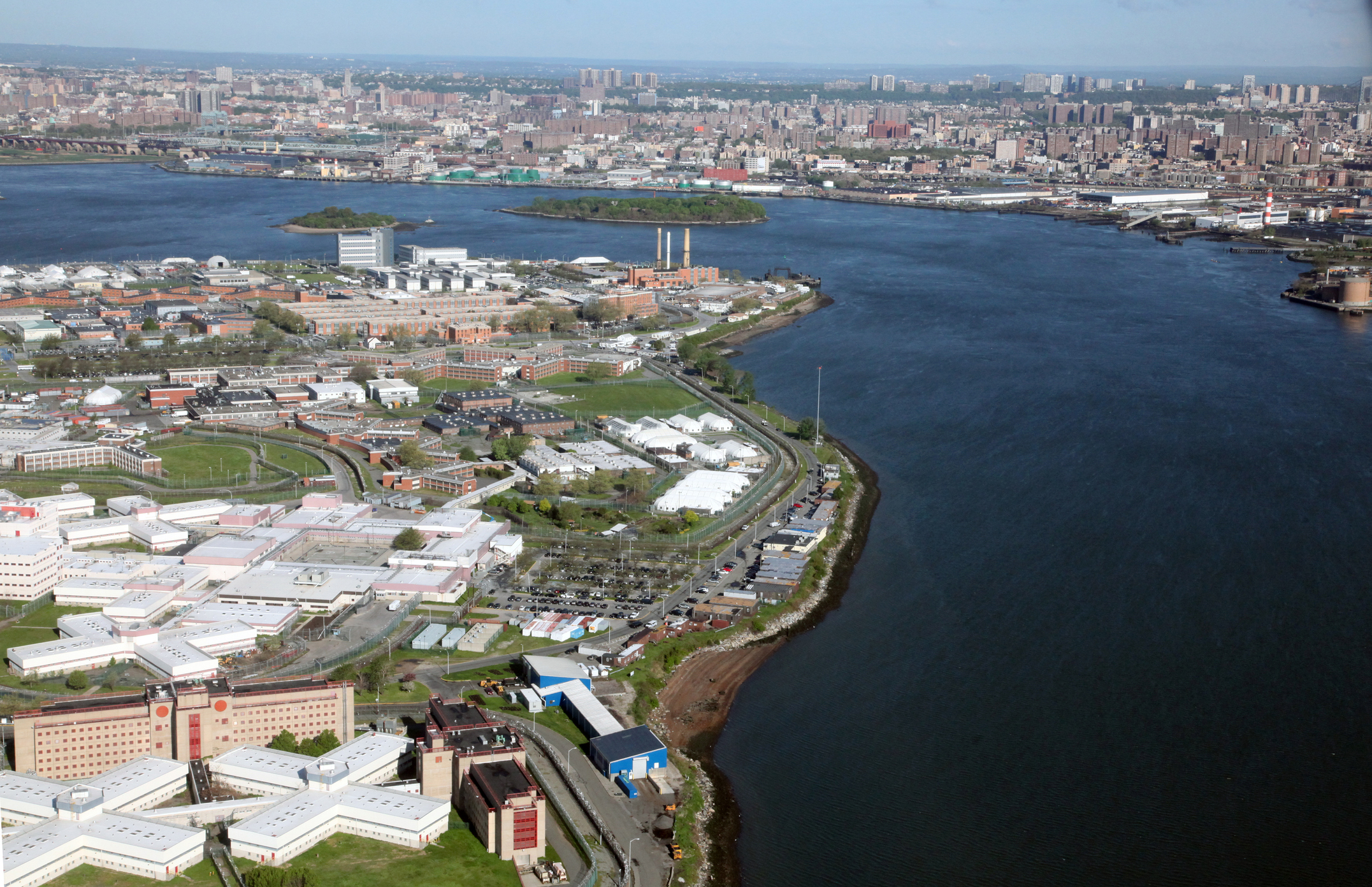I witnessed a suicide attempt on Rikers Island on Monday. Colleagues from all levels of New York’s government and I were visiting the Otis Bantum Correctional Center, part of the city’s sprawling ten-jail complex — named after its second warden, who died while in command of the jail. Yet during our visit, no one seemed in command. While in conversation with one incarcerated person through the bars of their cell, I saw that person’s cellmate attempt to hang himself with a bedsheet. The attempted suicide was interrupted, but it stopped me in my tracks. What I saw demonstrated to me the deep depression and helplessness that has become internalized by all who are imprisoned and work on the island, where a humanitarian crisis is now raging.
This was the second time I had visited Rikers Island and the fourth visit I have made to a jail or prison in New York state in my eight short months in elected office. When I left Rikers on Monday, I remember a colleague exclaiming that what they had witnessed was the most horrific thing they ever saw. They were right. And yet horrific is an understatement: Rikers Island is in critical and inhumane condition, and immediate and drastic action must be taken in order to prevent any further loss of life.
During my visit on Monday, I witnessed the most egregious systemic act that a government can sanction: torture. While touring the site, I walked over urine and garbage and saw vermin and cockroaches, which underscored the unsanitary conditions that people on the island are made to endure in our names. Incarcerated folks were sharing their stories of abuse and neglect, informing us of not having access to a shower for a week; of reusing their face mask for multiple days in a row; of only receiving one meal a day; and of being denied urgent medical care. I witnessed open wounds that had not been attended to and elders who needed their blood sugar checked but had been denied. They were pleading for us to take down the phone numbers of loved ones and relay the horrific conditions in which they were held.
I visited the intake unit, where people are first brought during booking, and it had nearly 40 people confined to each cell. Among other forms of neglect, the people there had not been provided a case number and had not received the most basic of healthcare services, including biopsychosocial assessment or COVID-19 testing. I was distraught to speak to a trans woman who was housed with men in a housing unit for men. She informed me that she experienced sexual assault, felt unsafe, and had requested to be placed in the women’s facility, yet had been ignored.
Another incarcerated individual told me that they are living with HIV and had not received a medical evaluation or anti-retroviral medication. Discontinuation of antiretroviral therapy may result in viral rebound, immune decompensation, and clinical progression. Both interactions were incredibly shocking, as basic and life-saving medical care were being denied to people that, at least in theory and on paper, are wards of the state. My interactions also made clear that both the staff and the individuals incarcerated felt a deep sense of despair and hopelessness.
While we continue to battle a global pandemic outside of Rikers Island, the epidemic of mass incarceration was in plain and horrific view during this visit. People who have been directly impacted by the terrors of our criminal injustice system and advocates have outlined very clearly what we must do: We must decarcerate these institutions, and we must do it now. People at Rikers need to be released, and New York’s criminal legal system needs to stop sending new people to this inhumane facility.
As a healthcare advocate, I cannot overemphasize that the need for decarceration is a public health and public safety emergency. In the early days of the pandemic, the Legal Aid Society found that “the [COVID] infection rate at local jails is more than seven times higher than the rate citywide and 87 times higher than the country at large.” People detained in jail have a disproportionate risk of contracting COVID-19 and may augment infection rates in the communities to which they return after release from jail.
The only way to avert many similar tragedies, and more blood on our hands, is to decarcerate Rikers now.
To decarcerate the island we must act in a collaborative and expedient manner with all levels of government. It will take all of us to address the chaos of Rikers. First and foremost, New York City Mayor Bill de Blasio must use Correction Law 6-A to free people who are incarcerated as he did in April 2020 and stop further transportation of people who are arrested to the island. He can drastically reduce the size of the census of Rikers Island by using this law and he must do so immediately. Simultaneously, judges, district attorneys in all five boroughs, and all line prosecutors under them must cease the practice of charging and requesting cash bail from people. Stopping this practice can save lives. The Center for Court Innovation found that as of November 1, 2020, the number of people held pretrial was a net 11% higher than it was even prior to the detection of COVID-19. This is inconsistent with the work that has been done to reduce the jail population.
Second, we must confront the cynical and fear-driven rollback of bail reform, which has only exacerbated this public health crisis. Beginning in July 2020, amendments to the initial law, which was intended to bring New York closer to its progressive ideals, exposed yet more people to bail and detention. From July through November of last year, the effect of these unfortunate amendments has resulted in a 7 to 11 percent increase in the pretrial jail population. This rollback has only furthered the COVID pandemic, and yet again we must reverse course in order to increase public health on Rikers Island, on the outside. The lives of both the workers and the people incarcerated, who sooner or later have to return to their communities, depend on it.
At the state level, I continue to urge Gov. Kathy Hochul to sign the Less Is More Act into law. I met countless people who were being held months on end because they were late for the curfew imposed by parole. Recent data shows that “there are approximately 35,000 people under active parole supervision in New York State who at almost any time can see their efforts to successfully rejoin the workforce and reintegrate into their families and their communities disrupted by reincarceration for a technical violation.” The legislation passed both chambers of the New York state legislature on June 10. If this legislation, which reflects the will of New Yorkers, will have any ameliorating effect on the catastrophe occurring on Rikers Island, it must be signed and implemented immediately, not by March 2022. Needless delays will cost lives.
And while all these efforts at meaningful decarceration take root, the barbaric practice of solitary confinement, in all its forms and by any name, must end immediately. During the 2021 legislative session, we in the state legislature passed, and then-Gov. Andrew Cuomo signed into law, the HALT Solitary Confinement Act, which reduces the amount of time that a person who is incarcerated can be kept in solitary confinement. Recent attempts by the New York City Department of Corrections to resort to other housing units with similar conditions is an attempt to undermine this legislation and is incongruent with the law we passed in New York state.
None of these proposals are especially groundbreaking, and what’s transpiring at Rikers is but one manifestation of a rot that runs deep in our nation’s penal institutions. But we cannot look away. The moment I witnessed a near-suicide attempt will be forever seared in my mind. In the days since, I have not been able to shake it. Maybe I never will. As I said right after my Rikers visit on Monday: Nobody deserves this. These are human beings. The only way to avert many similar tragedies, and more blood on our hands, is to decarcerate Rikers now.
Image: iStock

